News
Would you eat 10 year old rice? Activist demands court intervention
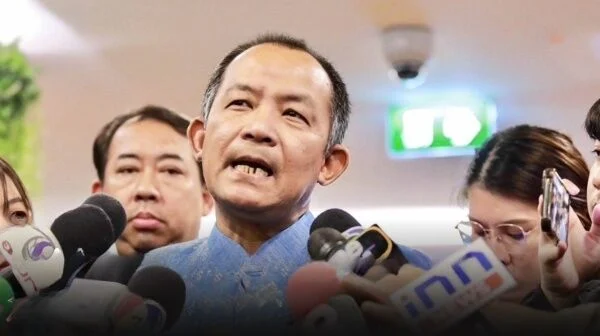
Srisuwan Janya, a prominent solo activist, has taken his concerns to the Central Administrative Court, aiming to urgently halt the Commerce Ministry’s proposal to auction off roughly 15,000 tons of rice from the scandal-ridden rice pledging scheme of the Yingluck Shinawatra government. In his petition, Srisuwan stressed the objections of numerous rice experts who argue against the auction, citing concerns that rice stored for over a decade loses its nutritional value, becomes inedible, and may be infested with insects. Despite assurances from the Department of Medical Sciences regarding the rice’s safety for consumption, Srisuwan raised doubts about the reliability of these tests, questioning whether the samples tested genuinely originated from the designated warehouses in Surin province.
A key point of contention lies in the auction’s terms, scheduled for June, which do not specify whether the rice must be exported or can be sold domestically. Srisuwan warned that exporting this aged rice could damage Thailand’s global rice reputation while selling it domestically, posing health risks to consumers. He urged the court to intervene and suspend the auction, overseen by the Public Warehouse Organisation under the Commerce Ministry’s purview, as reported by Thai PBS World. Srisuwan emphasized the potential harm to Thailand’s agricultural reputation and the health of its citizens.
Update: Panel Established for Auction of Decade-Old Rice
A dedicated panel has been formed to oversee the auction of the remaining 15,000 tons of rice from the contentious rice-pledging scheme initiated during Yingluck Shinawatra’s tenure as Prime Minister. Commerce Minister Phumtham Wechayachai announced this development, with the panel tasked with drafting the auction’s terms of reference (ToR), which is expected to be completed by the end of the month. The National Rice Policy and Management Committee (NRPMC) has granted the panel authority to proceed without further review.
The panel comprises representatives from various organizations, including the Public Warehouse Organisation, the Marketing Organisation for Farmers, the Internal Trade Department, the Foreign Trade Department, and the Thai Chamber of Commerce. The auction is anticipated to occur early next month or by the end of June.
Potential bidders will be able to assess the rice quality according to standards set by the Commerce Ministry. Phumtham states that the rice is intended to be exported to Africa. He expressed optimism about the auction’s outcome and highlighted that the revenue generated will benefit the state coffers. Phumtham called for an end to rice controversies, urging critics to focus on more pressing issues, such as the economy. He reiterated the safety of the rice as confirmed by the Department of Medical Sciences and a private laboratory, despite ongoing skepticism from critics regarding the origin of the tested samples.
Original Story: Thai Government to Auction Decade-Old Rice After Safety Confirmation
The Thai government plans to proceed with the auction of rice from Yingluck Shinawatra’s pledging scheme, stored in two Surin warehouses for ten years, following laboratory tests confirming its safety. Commerce Minister Phumtham Wechayachai, currently in Italy, announced that tests conducted by a private laboratory on samples from the Surin warehouses revealed no aflatoxins or other chemical residues. Phumtham welcomed the results, mainly since journalists provided the samples and also tested by the Department of Medical Sciences (DMSc).
With the rice deemed safe, Phumtham instructed the Public Warehouse Organisation to prepare the auction’s terms of reference and draft contracts. DMSc Director-General Dr. Yongyot Thammavudhi confirmed the completion of testing on rice samples from the Commerce Ministry, with results to be disclosed at a press conference.
Prime Minister Srettha Thavisin expressed the government’s willingness to have the rice quality assessed by a neutral agency to ensure its suitability for export. Phumtham stressed the necessity of auctioning off the remaining rice from the loss-incurring pledging scheme to generate revenue and reduce storage costs, estimated to be up to 380,000 baht monthly. The rice is expected to be exported to Africa.
Earlier inspections by Phumtham and officials at the Surin warehouses aimed to demonstrate the rice’s edibility after ten years of storage. Critics voiced concerns about potential health hazards due to multiple fumigation cycles over the decade. An organic chemistry expert claimed to have found aflatoxins in rice samples from the Surin warehouses, raising further doubts.
Related: Reap profits from collecting mushrooms
Critics also highlighted concerns about the controversy’s impact on the reputation of Thai rice in international markets, given the history of the rice-pledging scheme’s losses and corruption allegations. Despite efforts to address safety concerns and proceed with the auction, skepticism persists among critics regarding the quality and safety of the rice.
News
Pickup truck crash in Lampang kills one amid heavy rain
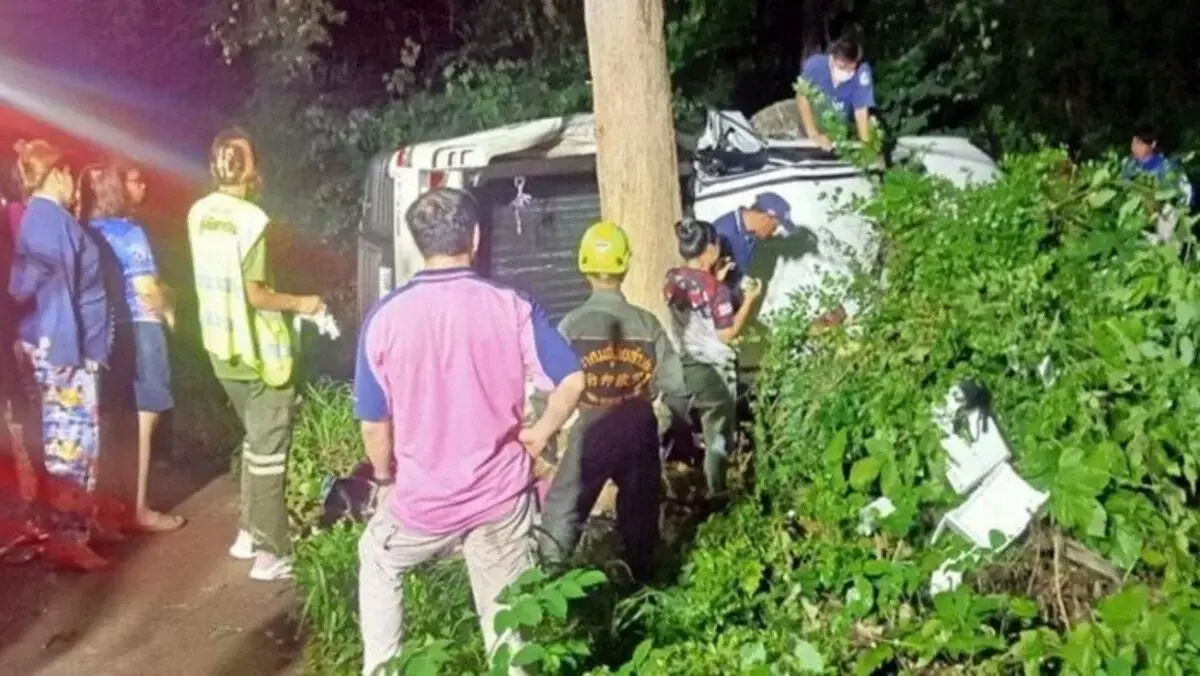
Due to heavy rain, a pickup truck returning from Chiang Mai skidded off the road and crashed into a tree in Thoen, Lampang.
Despite the efforts of rescue teams, a 50-year-old woman tragically lost her life.
The accident was reported to Thoen Police Station in Lampang at 6:50 PM yesterday, July 30.
The incident occurred on Phahonyothin Road, between kilometer markers 632 and 633, near the Mae Thot intersection in Thoen district.
Rescue units from Mae Thot, Lampang, Thoen, and Ombun Thoen were promptly dispatched to the scene.
Related News: Police arrest violent
Upon arrival, responders discovered a white, four-door Mazda pickup truck with a Surin registration overturned and severely damaged from colliding with a large roadside tree. Inside the vehicle, four injured individuals were trapped.
Rescue teams quickly extracted three injured and provided initial medical assistance before transferring them to a hospital.
However, a 50-year-old woman from the Na Pang subdistrict, Phu Phiang district, Nan province, who was seated in the back, sustained critical injuries and succumbed to them before she could be freed from the wreckage.
Initial investigations revealed that the group had traveled from Chiang Mai to Nakhon Pathom.
The accident occurred on a curved section of the road, worsened by wet and slippery conditions from the rain.
The vehicle lost control and crashed violently into the tree.
After extracting and treating the injured, the deceased’s body was transported to the hospital for further examination.
Police have launched a formal investigation into the accident. They are gathering evidence and statements from the injured to understand the exact circumstances leading to the crash.
The results of the investigation will guide necessary legal proceedings, reported KhaoSod.
Authorities advised.
“We urge all drivers to exercise extreme caution, especially in bad weather and on curved roads.”
News
Police arrest violent debt collector after tip-off in Bangkok

Police apprehended a member of a violent debt collection gang linked to the assault of a 73-year-old woman following a tip-off. He was caught while attempting to flee from a motel on the outskirts of Bangkok.
High-ranking police officials, including Thiti Sangsawang, Noppasin Poolsawat, and Thiradech Thamsuthee, along with a team of investigators, successfully arrested Kritchit, also known as 33-year-old Chit Thasala, from Nakhon Si Thammarat Province today, July 30.
He is one of the three members of the gang responsible for violent debt collection activities, including physical assault, intimidation, kicking doors, cutting off electricity, and locking debtors inside their homes.
The Min Buri Criminal Court issued an arrest warrant for Kritchit on July 23 for operating an unauthorized personal loan business, charging excessive interest, and threatening debt collection practices.
Related News: Thai vendor denies
He was apprehended at a hotel in the Saphan Sung district as he tried to escape in his car. During interrogation, Kritchit denied all charges, stating he had only completed Grade 9 and initially worked as a fruit farmer in Phuket’s Thalang District. In 2022, he sold his orchard land and used the proceeds to start a money-lending business.
He collaborated with two other suspects, Ta and Khet, who are still at large, to lend money in the Min Buri, Ram Inthra, Rom Klao, and On Nut areas.
They charged an interest rate of 20% daily, with borrowers typically taking out 5,000 to 6,000 baht loans. Kritchit claimed that Ta and Khet were responsible for using violence against the debtors on the day of the incident.
“I only worked with Ta and Khet to lend money. They were the ones who used violence.”
However, police remain skeptical of his testimony. Investigations revealed that Kritchit is romantically involved with the younger sister of Kenwit, another gang member who was previously arrested for assaulting the older woman.
Kenwit’s gang had attacked the 73-year-old in the Chokchai area. After receiving a tip-off, Kritchit fled to the hotel, where he was captured.
Police have transferred Kritchit to the Min Buri Police Station for further legal proceedings. His capture is a significant breakthrough in the ongoing crackdown against violent debt collection gangs operating in Bangkok and nearby areas.
As one of the lead investigators remarked, we are committed to cracking down on these illegal activities and ensuring the safety of our citizens.
Kritchit’s case will proceed through the legal system, and police are continuing their search for the remaining gang members, Ta and Khet. The investigation remains ongoing, with police hopeful that further arrests will follow, dismantling the entire network of violent debt collectors, reported Khaosod.
News
Thai vendor denies assault, cites stress from poor sales
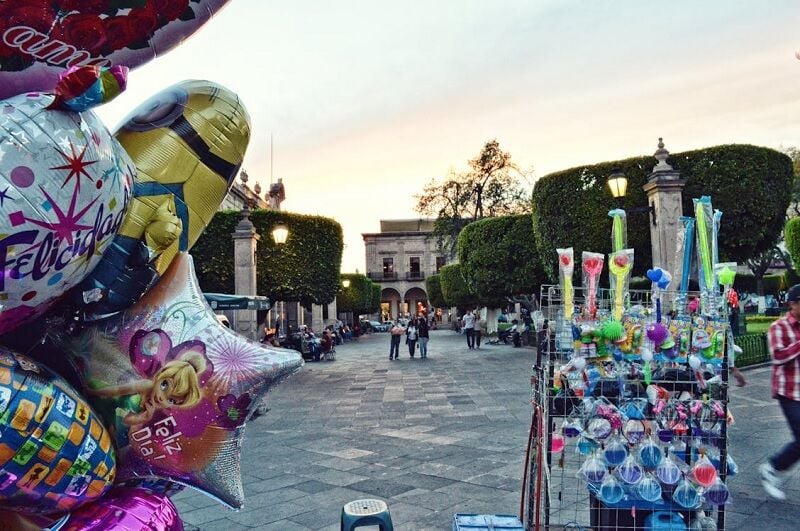
A Thai grilled squid vendor turned himself in and expressed remorse after allegedly striking a Pattaya city official who requested him to move his sidecar motorcycle from obstructing traffic.
The vendor, however, denied the physical assault, citing stress from poor sales as the trigger for the incident. He claimed their encounter was limited to a verbal disagreement and a shirt tug.
Pattaya police yesterday, July 29, invited Siwachett Nakham, a 42-year-old former temporary employee at the government’s Public Works Department and a current grilled squid vendor, to meet with an investigator to address the dispute.
Related News: Legend enjoys spring
The altercation involved Siwachett and a 40-year-old Pattaya city official, Udon Woranam, who had requested Siwachett to move his vehicle, blocking traffic near Jomtien Beach in front of the Dongtan Police Box. Siwachett was accused of punching Udon after the latter politely asked him to move his motorcycle. Siwachett, who acknowledged being the person in the video, denied the physical assault, maintaining that he only had a verbal confrontation with Udon and tugged his shirt.
He cited stress from poor sales and financial burdens as the reasons behind his behavior.
“I did not intend to harm Mr Udon because I had worked with the Public Works Department before, so I knew hitting an official was a bad idea.”
Siwachett apologized for his actions, and Udon said he did not wish to pursue the matter further. Despite this, Pattaya City insisted on taking legal action against the vendor to set a precedent and deter similar future incidents.
Selling goods
Additionally, Udon advised other vendors to remain calm, control their emotions, and adhere to the designated areas for selling their goods according to the law.
Following resolving this dispute, traffic police officers from Pattaya Police Station raided vendors illegally selling goods on public sidewalks and roads around Pattaya. This operation was in response to tourists’ complaints about obstructions and hazards caused by unorganized vendors.
When authorities arrived near Pattaya Police Station’s Dong Tan substation, they encountered heavy traffic congestion caused by street vendors parking on the road. Some vendors attempted to evade arrest by speeding through the officers’ blockade, putting the safety of officers and nearby individuals at risk.
Thai police managed to apprehend 12 vendors, who will now face legal proceedings for violating traffic and cleanliness laws. The police also announced plans to increase daily inspections in collaboration with municipal officials to restore public spaces for residents and tourists, reported the Pattaya News.
-

 Entertainment2 years ago
Entertainment2 years agoJohn Legend enjoys spring break in Phuket
-
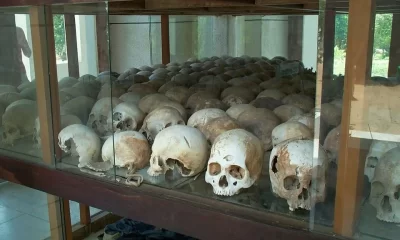
 Entertainment2 years ago
Entertainment2 years agoDark history to exotic delights: Cambodia and Thailand tourist strategy
-
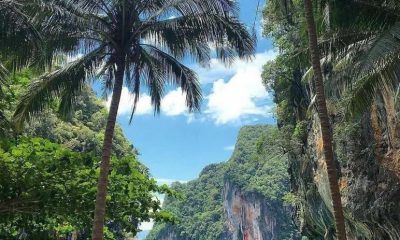
 Entertainment2 years ago
Entertainment2 years agoPhuket’s Tourist Case court division resumes after four-year break
-

 Entertainment1 year ago
Entertainment1 year agoSiam Paragon and Bangkok Pride proudly celebrates Pride Month from May 31 – June 4, 2024
-
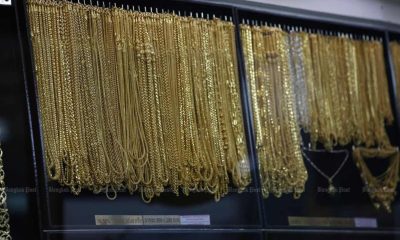
 Fashion2 years ago
Fashion2 years agoFed’s rate cut sends gold soaring past US$2,200 per ounce
-
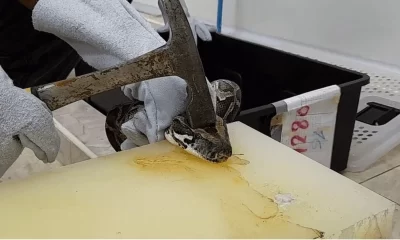
 Fashion2 years ago
Fashion2 years agoFashion brands linked to brutal slaughter of reptiles in Thailand (video)
-
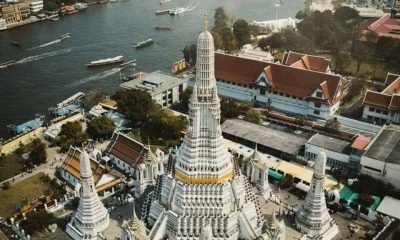
 Entertainment2 years ago
Entertainment2 years agoTrue Corporation partners with TAT to boost Thailand tourism
-

 Fashion2 years ago
Fashion2 years agoGold prices in Thailand surge with ornaments at 37,350 baht




